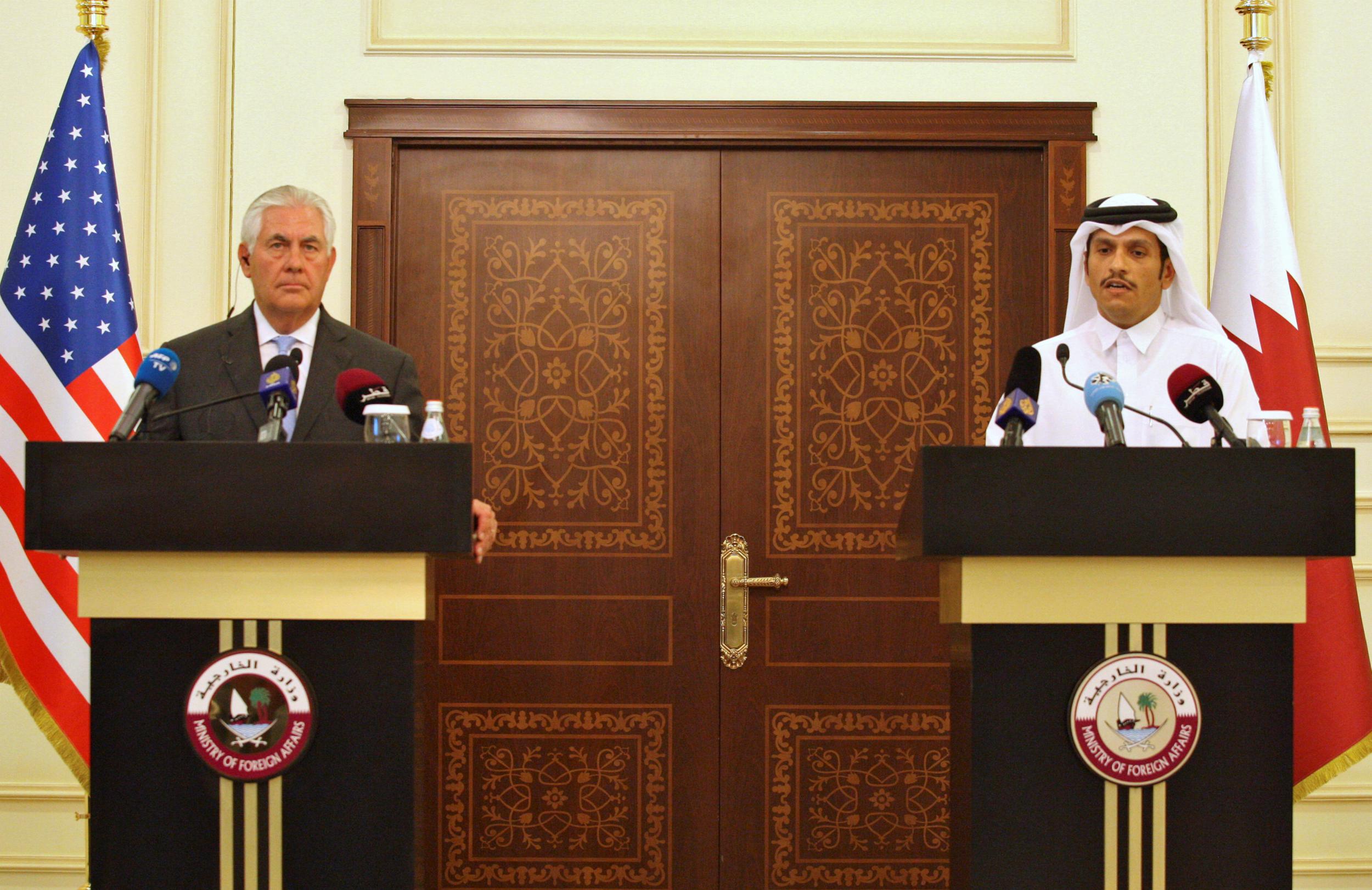UAE denies launching cyber attack on Qatari news agency that sparked diplomatic crisis
Emirati foreign minister says claims his government planted false news stories quoting Qatari emir which contributed to current diplomatic spat are not true

Your support helps us to tell the story
From reproductive rights to climate change to Big Tech, The Independent is on the ground when the story is developing. Whether it's investigating the financials of Elon Musk's pro-Trump PAC or producing our latest documentary, 'The A Word', which shines a light on the American women fighting for reproductive rights, we know how important it is to parse out the facts from the messaging.
At such a critical moment in US history, we need reporters on the ground. Your donation allows us to keep sending journalists to speak to both sides of the story.
The Independent is trusted by Americans across the entire political spectrum. And unlike many other quality news outlets, we choose not to lock Americans out of our reporting and analysis with paywalls. We believe quality journalism should be available to everyone, paid for by those who can afford it.
Your support makes all the difference.The United Arab Emirates’ foreign minister has hotly denied that his government was responsible for the alleged hack of a Qatari state news agency which helped spark the current diplomatic crisis enveloping the Gulf.
“The Washington Post story today that we actually hacked the Qataris is also not true,” Anwar Gargash told London-based think tank Chatham House on Monday.
Saudi Arabia, the UAE, Bahrain and Egypt - followed by a handful of other Muslim countries - abruptly cut off all diplomatic and trade ties with tiny Qatar on 5 June, alleging that the state interfered in the affairs of its Arab neighbours and funded terror organisations. Qatar vehemently denies all the allegations against it.
Talks aimed at resolving the deepening rift, mediated by Kuwait, have so far been unfruitful. International allies such as the US are worried that the row could affect coalition counter-terrorism efforts against Isis.
The falsified news report which surfaced in late May quoting Qatar’s Emir Tamim bin Hamad al-Thani as praising Hamas, Hezbollah, Iran and Israel was a sign of the row that was to erupt two weeks later: the quotes were met with a particular storm of criticism by Saudi Arabia and the UAE, which in retaliation blocked Qatari-owned al-Jazeera from broadcasting.
Qatar said at the time that it had been hacked by unknown entities. Later, it blamed the UAE for the planted story - an allegation backed up by the US intelligence sources quoted in the Washington Post on Sunday.
Newly analysed information showed that senior UAE government officials had discussed the planned hacks of the news agency and government social media accounts on 23 May - the day before they occurred, the newspaper said, quoting unnamed officials.
It was not clear whether the UAE hacked the Qatari sites itself or paid another entity to do so, the Post added.
The UAE’s ambassador to the US, Yousef al-Otaiba, also issued a statement describing the report as false.
“What is true is Qatar's behaviour. Funding, supporting, and enabling extremists from the Taliban to Hamas and Gaddafi. Inciting violence, encouraging radicalisation, and undermining the stability of its neighbours,” the statement said.
While US Secretary of State Rex Tillerson flew to the region last week in an effort to bring the parties to the negotiating table, a State Department spokesperson did not predict any breakthrough in the near future.
On his departure Mr Tillerson had left proposals with the Saudi-led bloc and Qatar which included “a common set of principles that all countries can agree to so that we start from... a common place,” Robert Hammond said on Saturday, but “we don’t expect any near-term resolution.”
Join our commenting forum
Join thought-provoking conversations, follow other Independent readers and see their replies
Comments